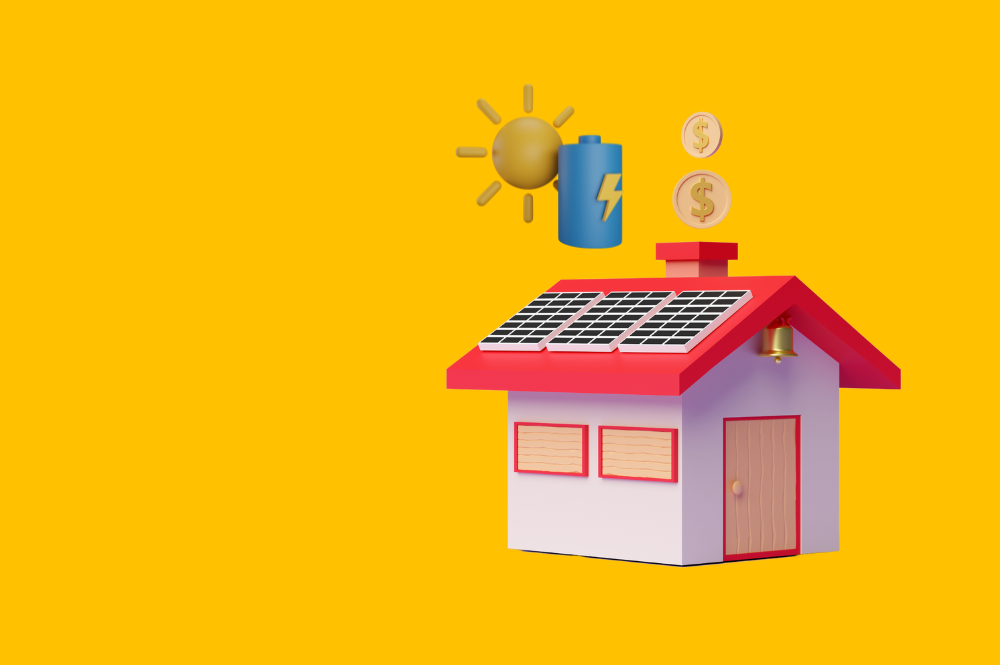Ready to make your home energy-efficient? Solar batteries are the answer. But, how do you know what battery to choose? We share our expert insights to help you make the right choice for your home’s needs.
How do I choose a solar battery?
What are solar batteries?
Solar batteries are small energy-storage devices that can be attached to your existing solar system, making it even more effective. They capture and store your excess solar energy, rather than sending it back to the grid, so you can use it when you need it.
What are the advantages of solar batteries?
Solar batteries take your solar system to the next level with the following advantages:
- System efficiency: By storing excess energy in a battery, rather than sending it back to the grid, you can reduce your amount of wasted energy
- Energy independence: Acting as a source to draw energy from, batteries help reduce your reliance on the grid and therefore help you achieve greater energy independence
- Backup power: Stay connected to your own source of power during grid outages so you can avoid stress and disruptions to your household routines
- Sustainability impacts: By using more of the solar energy your system is generating, you can reduce your carbon footprint
- Cost savings: By using your stored energy for longer and taking advantage of it during peak hours, you can save even more money on your energy bills
Can I buy a battery if my house has solar?
Definitely! You can add a battery to an existing on-grid solar system. To move to a hybrid solar system (a system that is connected to the grid and has a battery) you have two options. One, replace the existing inverter with a hybrid inverter. Two, keep the current inverter and add a battery inverter. Option two is the most common and cost-effective solution.
What if I don’t have solar?
To use a battery for your household electricity, you’re going to need a solar system. We recommend installing a brand-new hybrid system. This system includes a hybrid inverter and streamlines the setup by consolidating all components into a single inverter box, ensuring efficient management of both solar panels and battery inputs.
How much battery storage do I need?
Your battery is going to come in extremely handy during blackouts. So, consider your needs during events like this. Do you require a full power to backup your whole house? Or, do you just need partial backup? Try to exclude any non-essential appliances like pool pumps, from your assessment. TVs and computers might also fall into non-essential items, but be sure to cover the essentials like fridges and freezers.
Matching the battery size to your average energy consumption and solar output is crucial. Undersized batteries could limit your return on investment, whereas oversized batteries may never completely charge. Get to know your energy environment to find the perfect size.
What types of batteries are there?
There are four main types of battery technologies that pair with residential solar systems:
- Lead acid batteries
- Lithium ion batteries
- Nickel based batteries
- Flow batteries
Find out more about the different solar battery storage options here.
How do I choose the right solar battery?
Consider capacity, efficiency and cycle life.
- Capacity: Consider the storage size (measured in kilowatt-hours ‘kWh’) of the battery and ensure it meets your solar system’s needs
- Efficiency: Consider the percentage of energy that the battery can convert (from chemical to electrical)
- Cycle life: Consider the lifespan of the battery to assess its overall value. The cycle life is the number of times a battery can be charged and discharged, before it needs replacing
Investing in a solar battery is a big commitment, so make sure you’re well informed. Ready for a battery? We can help you with the right battery storage solution and installation for your home. With the right battery, you can maximise energy savings, increase energy independence and enjoy a backup power source – what’s not to love?


Leave A Comment